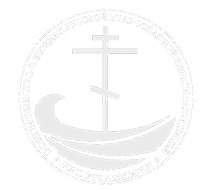January 15, 2014
At 5 a.m. Brother Lev began to clear the snow off the path to the church – there was just enough time to do it before Liturgy. It was -4°F, and an icy wind was stinging his face. He was frozen to the marrow and was having comforting thoughts about there being just enough time to warm himself in his cell before the service. However, when he got back to his cell the radiator was cold; the old furnaces were not always able to cope with the cold New York winters, but Holy Trinity Monastery did not have the money to repair them. "The monks and visitors complain that it is very cold in some of the rooms. We need to resolve this issue, but at the same time we need to stop using these dangerous radiators in the rooms," says Archimandrite Luke, the monastery's abbot. "We recently replaced the boilers in the basement. Now we need to replace the old pipes and renovate the building so that all the floors are at the same temperature. This is a huge problem for us at present."
Holy Trinity Monastery has never been wealthy in a worldly sense. The monastery was founded in 1930, and its buildings were built on the immigrants' very scanty means and from the cheapest materials. It has been almost 90 years, and the buildings and pipelines have fallen into serious disrepair. The monks repaired the damages and patched the holes as best they could, and carried on with their main task: to pray for their fellow Christians and for the whole world.
Last year, however, the situation took an unexpected and serious turn. The government of the state of New York required that the monastery immediately remove the decaying oil tanks that were leaking kerosene into the soil. The monastery was in no condition to pay the $300,000 needed for the disposal of the tanks, so they had to make budget cuts wherever possible. Their food budget, for instance, was dramatically downsized. For a long period of time the monastery's diet consisted solely of beans, even on great feasts.
Although the FFA's bylaws do not permit it to make donations for the construction or repair of buildings, we knew that the members of our Church could not remain indifferent to the hardships faced by our diaspora's lavra – a lavra that has nurtured entire generations of clergy for the whole Russian Church Abroad.
Thanks to a successful campaign launched by the fund, we collected around $105,000 for the monastery. Consequently, the monastery's resources, which would have gone towards medical insurance, food, and other needs of the monastery and its inhabitants, were spent on the urgently needed repairs. The monks and seminarians are now provided with such essentials as electricity, heating, and hot water.
This warmth provided to the monastery brethren is due to the generosity of our donors, and the brethren pray earnestly for them at every Liturgy. May the Lord bless you for your generosity!
|



